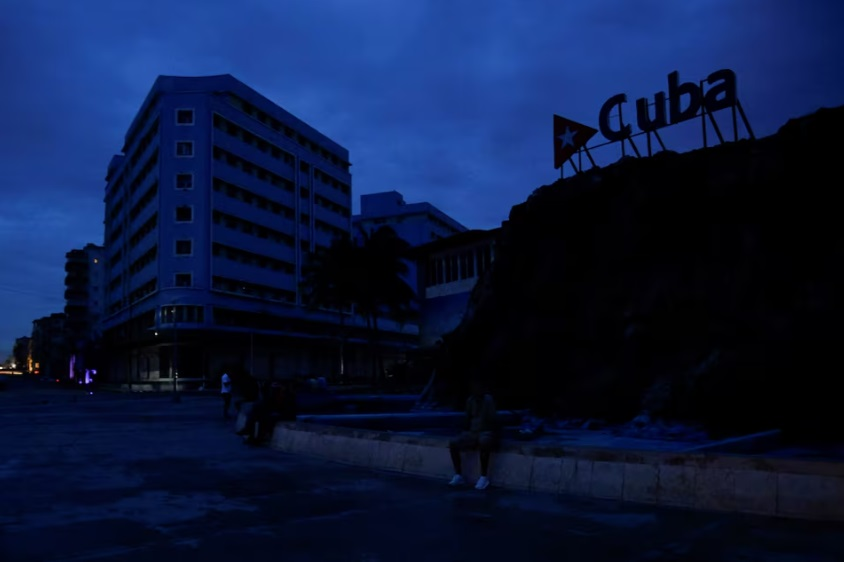Cuba started restoring electricity on Friday evening after an island-wide blackout left most of the country in darkness for several hours. The power outage was triggered by the collapse of the Antonio Guiteras power plant, one of Cuba’s major oil-fired generation facilities. The blackout, which affected the vast majority of the country’s 10 million residents, left cities and towns in complete darkness, with Havana, the capital, among the hardest-hit areas.
As of mid-evening Friday, power had returned to some pockets of Havana, including critical infrastructure such as hospitals. However, the majority of the population was still without electricity, enduring another night of hardship. The state-run electricity provider UNE announced it aimed to restart at least five of its oil-powered generation plants overnight, which it hoped would gradually restore power to more regions across the country.
In a bid to prevent total grid failure, the Communist government had earlier in the day ordered schools and non-essential businesses to close and sent most state employees home. However, by midday, the Guiteras plant went offline, causing a complete blackout. Officials are working to repair the facility, although they have not provided specific details on what caused the failure.
The blackout is the latest blow to the country, where residents are already grappling with severe shortages of food, fuel, water, and medicine. Streets in Havana were eerily quiet as commerce came to a halt, with locals sitting on doorsteps to escape the stifling heat. Tourists in the city were left frustrated by the situation, unable to access internet services or find food in restaurants due to the lack of power.
“We went to a restaurant, and they had no food because there was no power. Now, we are also without internet,” said Brazilian tourist Carlos Roberto Julio, who had only recently arrived in Havana. “In two days, we have already had several problems.”

Cuba’s Prime Minister Manuel Marrero blamed the worsening blackouts on the country’s deteriorating energy infrastructure, fuel shortages, and rising demand for electricity. In a televised address, Marrero highlighted that recent adverse weather conditions, including strong winds from Hurricane Milton, had made it difficult to transfer fuel from ships offshore to the power plants.
The government also attributed the island’s fuel shortages to the long-standing U.S. trade embargo and sanctions imposed under the Trump administration, which they argue have hindered their ability to acquire the necessary fuel and spare parts to keep the power plants running.
“The economic war and energy persecution by the United States are the primary causes of our complex energy situation,” Cuban President Miguel Díaz-Canel said in a message posted on X (formerly Twitter).
However, the U.S. government refuted the claim, stating that Cuba’s energy crisis was not a result of U.S. policies. A spokesperson from the National Security Council reiterated that the U.S. was not to blame for the blackout. The State Department noted it was monitoring the potential humanitarian impact of the outage, but added that the Cuban government had not requested any assistance.
For many Cubans, the nationwide blackout was yet another difficult night in a country used to enduring power outages. Carlos Manuel Pedre, a local resident, shrugged off the situation and turned to playing dominoes with friends to pass the time. “In the times we’re living in, with everything happening in our country, the most logical entertainment is dominoes,” Pedre said. “We’re in total crisis.”
Cuba’s power shortages have been exacerbated by a sharp reduction in fuel shipments from its largest supplier, Venezuela. According to shipping data, deliveries have halved in 2024 compared to the same period in 2023, as Venezuela struggles with its own energy issues. Other allies, such as Russia and Mexico, have also significantly reduced fuel shipments to Cuba, forcing the island to purchase fuel on the expensive global spot market, further straining its already fragile economy.
















